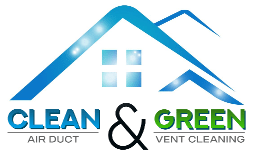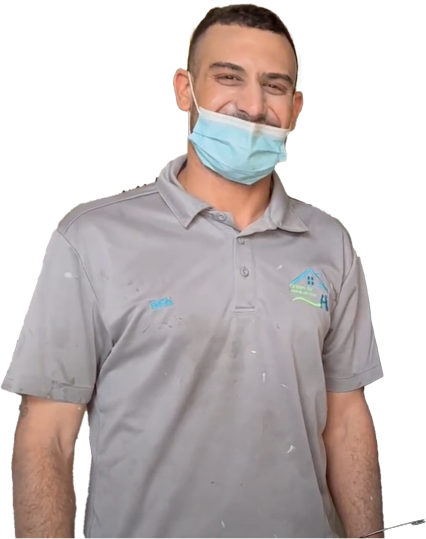Houston Air Duct Cleaning
Certified By:





Certified Air Duct Cleaning Service in Houston, TX
Welcome to our air duct cleaning in Houston, TX. As a trusted provider, we prioritize the maintenance of healthy indoor air quality to ensure your comfort and well-being. Our team of certified and insured technicians is dedicated to delivering top-quality results. With advanced equipment and industry-leading techniques, we guarantee the thorough cleaning services of your air ducts.
With a strong reputation as leading experts in Houston’s air duct cleaning, our commitment to excellence is evident. Our certifications validate our expertise, and our satisfied customers speak to our track record of success. When you choose us for your HVAC duct cleaning needs, you can expect exceptional duct cleaning services and noticeable results.
Contact us today to schedule an appointment and experience the professional air duct cleaning service that Houston trusts. Improve your indoor air quality and enjoy a healthier living space with our specialized expertise.
- Certified Professionals
- 100% Satisfaction Guaranteed.
- Free Air Duct Repair Estimates.
- Experienced & Reliable Service
This Is How We Clean Ducts!
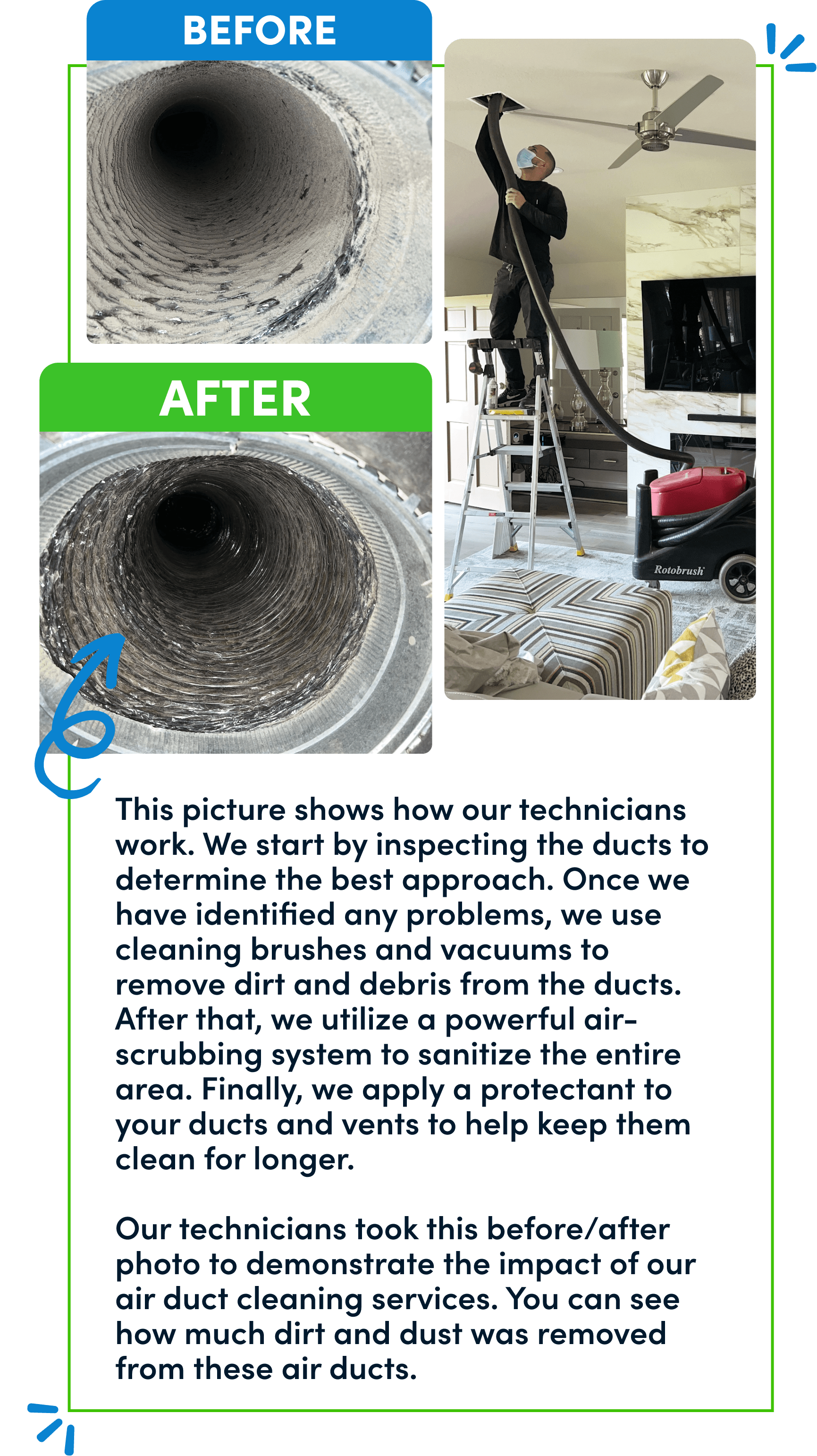
Looking for professional air duct cleaning service in Houston? Clean & Green Air is here to help. Contact us today at 866-717-0229 for a personalized quote!
Talk To An Expert Today!
Please fill out this brief form and we’ll contact you shortly.
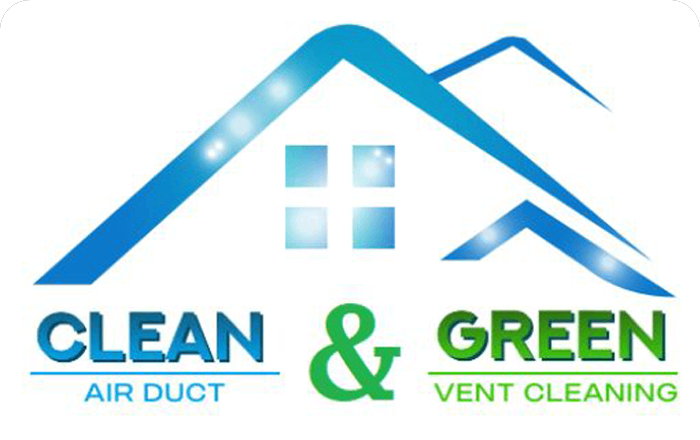
Exciting News For New Customers!
Get $50 Off
We’re excited to offer you $50 off your first purchase with us on any Air Duct or Dryer Vent Cleaning Service. To redeem this offer, simply complete your online booking, call, or contact us.
*Coupons & special offers cannot be combined with other offers. Valid toward standard pricing only. Limit one offer per household.
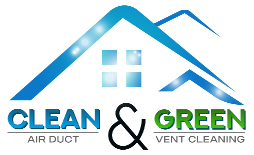
Clean & Green Air Duct Cleaning
4.7 ★★★★★★★★★★ 135 reviews
Our Air Duct Cleaning Services & Costs in Houston

Air Duct Cleaning Special
$129 (Regular Price $179)
- Per A/C Unit, Includes
- FREE Check Up
- FREE Organic Deodorizer
- FREE Camera Inspection
*Coupons & special offers cannot be combined with other offers. Valid toward standard pricing only. Limit one offer per household.
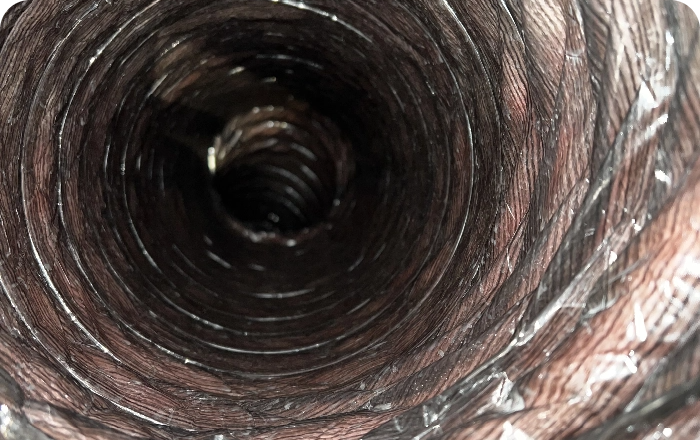
Air Duct Deep Cleaning
$45 Per Duct / Vent
*Coupons & special offers cannot be combined with other offers. Valid toward standard pricing only. Limit one offer per household.
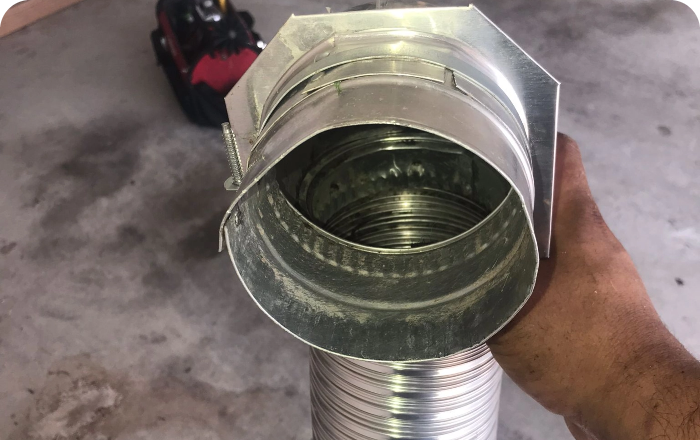
Dryer Vent Cleaning
$99 up to 10ft
(Regular Price $149)
*We clean with air pressure from the bottom all the way to the top.
Our technicians are trained to service dryer vents, and they’ll also be able to check your connections to make sure that your dryer is installed correctly and there isn’t an air leak.
*Coupons & special offers cannot be combined with other offers. Valid toward standard pricing only. Limit one offer per household.
$129 Air Duct Cleaning Special Offer
Elevate your indoor air quality with our air duct cleaning special in Houston, TX, for just $129 per A/C unit, delivered by certified air duct experts. This comprehensive service includes the removal of debris, dust, and allergens from inside the air duct system to ensure cleaner air circulation.
Our air duct cleaning and maintenance special in Houston, performed with negative machine pressure, thoroughly cleans up to 15 supply air ducts and 2 main return ducts using a specialized brush technique. Plus, you also get a free checkup, free camera inspection, and free organic deodorizer, enhancing the value and effectiveness of our service.
Air Duct Deep Cleaning Starts at $45
For a more intensive cleaning experience, we offer air duct deep cleaning services, with costs starting from $45 per duct. This thorough process targets not only debris and dust but also bacteria, mold, and other impurities that may be present in the air ducts. By eliminating potential health hazards and reducing odors, we create a cleaner and fresher indoor environment.
The cost of air duct deep cleaning varies depending on the size and level of dirtiness of each duct. Typically, it ranges from $45 to $85 per duct. Our technicians use a Rotobrush machine that connects to each duct individually, allowing for a deep cleaning of up to 50 feet into the HVAC system.
Our Client Reviews
Don't put up with poor air quality and inefficient operation of your HVAC Duct System!
Contact Clean & Green Air Duct Cleaning Today
Residential Duct Cleaning in Houston, TX
At Clean & Green Air Duct Cleaning, we recognize the critical role that residential duct cleaning plays in maintaining a healthy and hygienic environment in Houston, TX. The air circulating in your home can contain allergens and particles that pose significant health risks. That’s why it’s crucial to ensure that your air ducts are clean and free from such contaminants.
We proudly offer residential duct cleaning in Houston, and the surrounding areas. With our extensive experience and specialized equipment, we guarantee a thorough removal of dust, dirt, and debris from your HVAC duct and vent.
Our team is committed to using eco-friendly products that are safe for your family and the environment. Providing superior service and delivering quality results is our utmost priority, so you can enjoy a safe and healthy home. Our knowledgeable air duct cleaners are always available to address any inquiries you may have about the process.
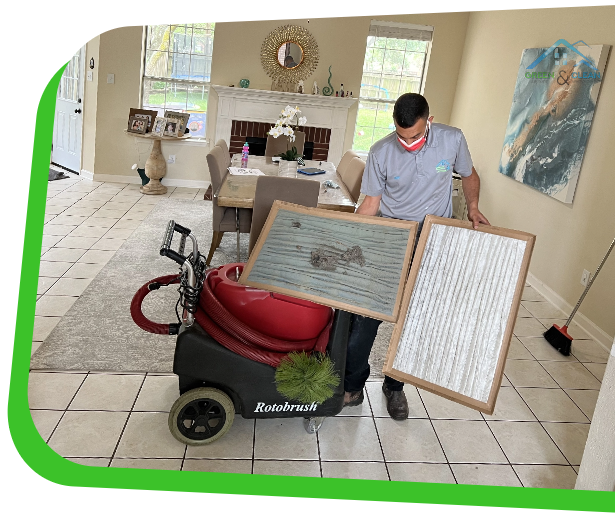
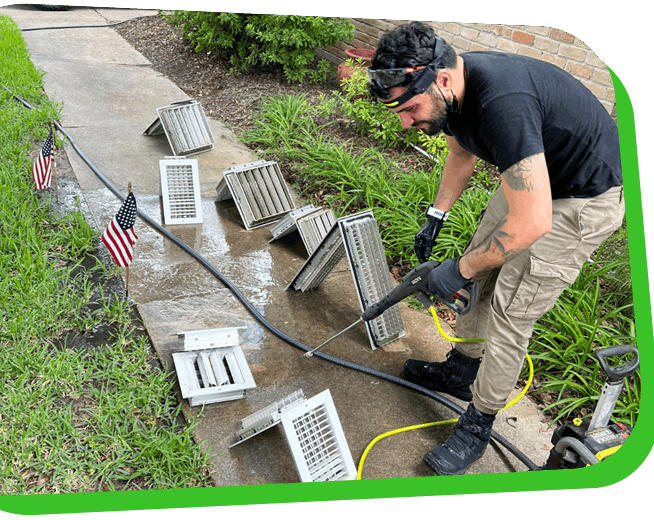
Benefits of Clean Air Duct and Mold Removal in Houston
In Houston, TX, the benefits of air duct cleaning include elevating indoor air quality and deterring mold formation, essential for a wholesome living environment. Here’s why it’s important:
Better Air Quality: Professional air duct cleaning removes dust, debris, and contaminants, improving the air you breathe and reducing issues.
Mold Prevention: Houston’s humid climate increases the risk of mold growth in air ducts. Regular cleaning eliminates moisture, preventing growth in your ductwork system.
Energy Efficiency: Unclean ducts and vents strain your HVAC system, resulting in higher energy consumption and utility bills. Clean ducts improve airflow and energy efficiency.
Long-Term HVAC Performance: Regular cleaning extends the lifespan of your HVAC system, minimizing breakdowns and costly repairs.
Ensure a healthy indoor environment in Houston. Breathe easier and enjoy a mold-free home.
Air Quality Improvement with Houston Duct Cleaning
In Houston where extreme weather conditions are common, duct cleaning services plays a vital role in ensuring indoor air quality. Regular cleaning of air ducts not only promotes a healthier living space but also brings several other benefits.
Professionals recommend air duct cleaning in Houston every 1 to 5 years for optimal results. Over time, air ducts accumulate dust, dirt, pollen, pet dander, and other airborne contaminants. Without regular duct cleaning service, these particles circulate through your home, affecting the air you and your family breathe.
Investing in regular air duct cleaning saves money on your energy bills and extends your HVAC system’s lifespan. When air ducts are clogged with debris, your HVAC system needs to work harder to circulate air throughout your home, resulting in increased energy consumption and higher utility bills.
By keeping your air ducts clean, you not only ensure better indoor air quality but also improve the energy efficiency of your HVAC system, leading to cost savings in the long run.
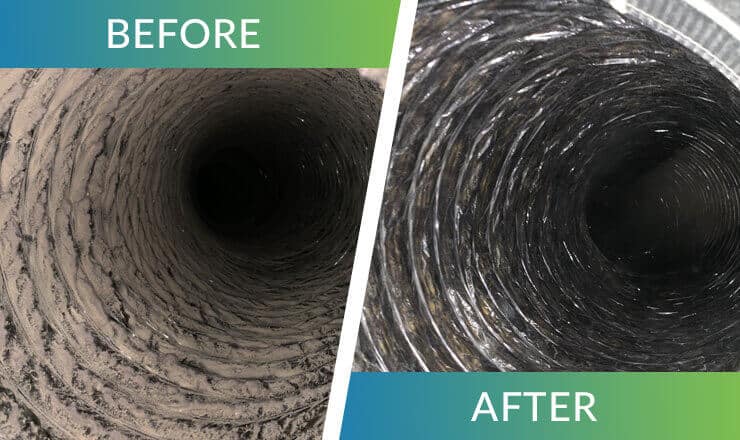
Signs You Need Professional Air Duct Inspection and Cleaning
When it comes to improving indoor air quality, hiring a professional duct cleaning companies in Houston, and surrounding areas is essential. By keeping your air ducts clean and free from dirt, debris, and contaminants, you can create a cleaner and safer living space for you and your family.
Identifying Signs Your HVAC Duct System Need Professional Cleaning:
- Dust Build-up: Excessive dust accumulation around your home, even shortly after cleaning, could be a sign of dirty air ducts. If you notice a persistent layer of dust on furniture, surfaces, and air vents, it’s likely that your air ducts are circulating dusty air throughout your living space.
- Allergy Symptoms: If you or your family members experience unexplained allergy symptoms like sneezing, coughing, watery eyes, or congestion while indoors, it could be a result of contaminated air ducts. Dust, pollen, pet dander, and other allergens can accumulate in the ducts and trigger allergic reactions.
- Mold or Mildew Growth: Musty odors, visible mold or mildew growth, or water damage near your air vents are clear indicators of mold infestation in your air ducts. Mold thrives in moist environments, and if not addressed promptly, it can compromise your indoor air quality and pose health risks.
- Inconsistent Airflow: If certain rooms in your home consistently receive less airflow than others, it could be due to blocked or clogged air ducts. Dust, debris, and even pests can accumulate in the ducts over time, obstructing the proper distribution of air.
By being vigilant and recognizing these signs, you can ensure the cleanliness of your air ducts and maintain a healthy indoor environment.
Cleaning services can effectively improve airflow, and enhance the performance of your HVAC system.
- HVAC Duct & Vent Cleaning
- Plenum Supply & Return
- Connection Box Cleaning
- Air Duct Seal
- Blower Cleaning
- Coil Cleaning
- AC Duct Cleaning
- Mildew Cleaning
- Organic Sanitation
- Ductwork Cleaning
Contact Clean & Green Air Duct Cleaning today at 866-717-0229 if you need Duct cleaners in Houston.
Discover Our Location Serving Houston, TX
Our Air Duct Cleaners Serving in Houston and Nearby Areas
Welcome to our specialized air duct cleaning services in Houston, Texas. As seasoned HVAC system cleaning professionals, we understand the need for pristine air quality and unparalleled comfort in your home. From Westside to Downtown, and extending to Southwest and Uptown Houston, our strategic location enables us to efficiently cater to every homeowner across Houston, TX metropolis. Trust in our expertise to elevate the air you breathe and ensure a healthy, comfortable living environment throughout Houston, Texas.
Ready to Breathe Cleaner Air?
Contact Clean & Green Air Duct Cleaning Houston today to schedule your service.
Located in: 2345 Sage Rd #365, Houston, TX 77056.
Areas served: Houston and nearby areas.
Retail Store Hours: Sun – Fri 8 AM – 6 PM.
Saturday Closed.
Mobile Service Hours: Sun – Fri 8 AM – 6 PM.
Saturday Closed.
Online Operating Hours: Sun – Fri Open 24 hours.
Saturday Closed.
Phone: (866) 535-5527
Houston Air Duct Cleaning FAQ’S
Generally, certified air duct experts recommend that you get your air ducts cleaned every 1-5 years. However, if you have pets or smoke in the house, it may be beneficial to do it more often.
It depends on their size and condition. However, if you hire experts in the area of air ducts cleaning in Houston, TX, it won’t take a lot of time. Generally, a professional air duct cleaning company can take a few hours to several days to complete the job.

Clean & Green Air Duct Cleaning
4.7 ★★★★★★★★★★ 135 reviews
